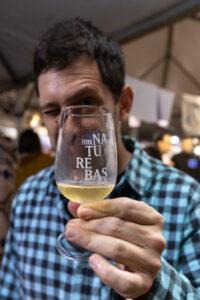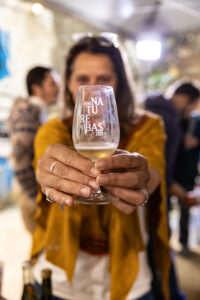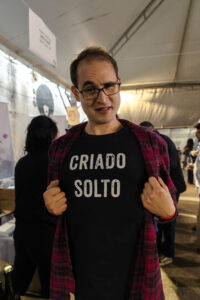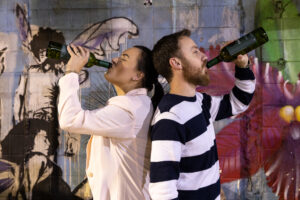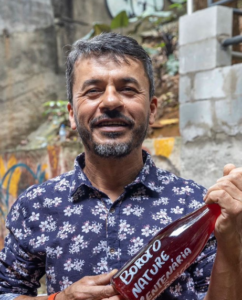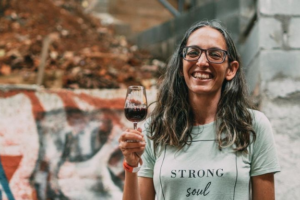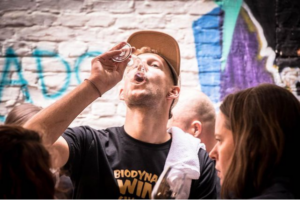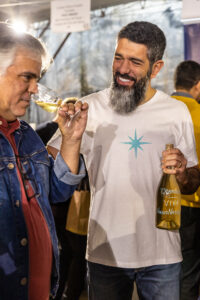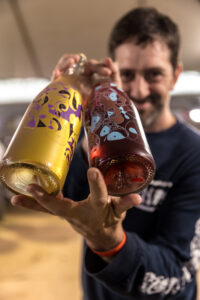About us
Feira Naturebas is a non-profit event, created in 2013 as an independent fair for natural, organic, and biodynamic wines. It is a space free from intermediaries and direct sales, designed to bring closer those who eat and drink to those who produce food and beverages in a clean, sustainable way. Feira Naturebas was the first specialized fair in Brazil and is now the largest event of its kind in Latin America, establishing itself year after year as the leading reference in the Latin American natural wine movement.
Date: June 21 & 22, 2025
Hours: 11 am to 1 pm (professionals) | 1 pm to 6 pm (general public)
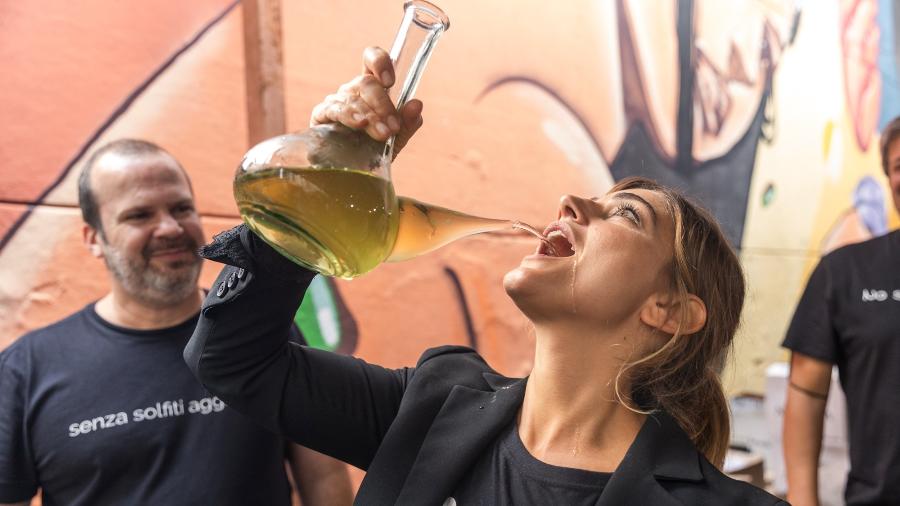
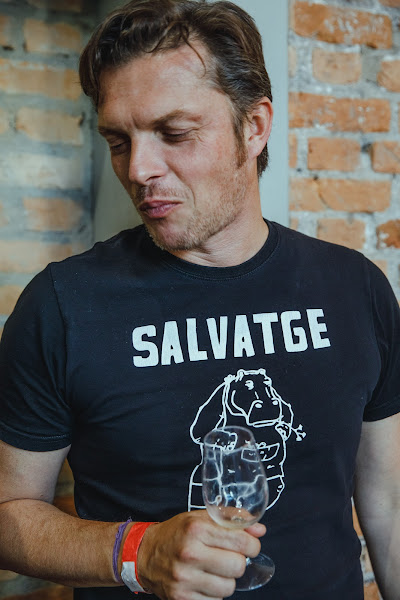
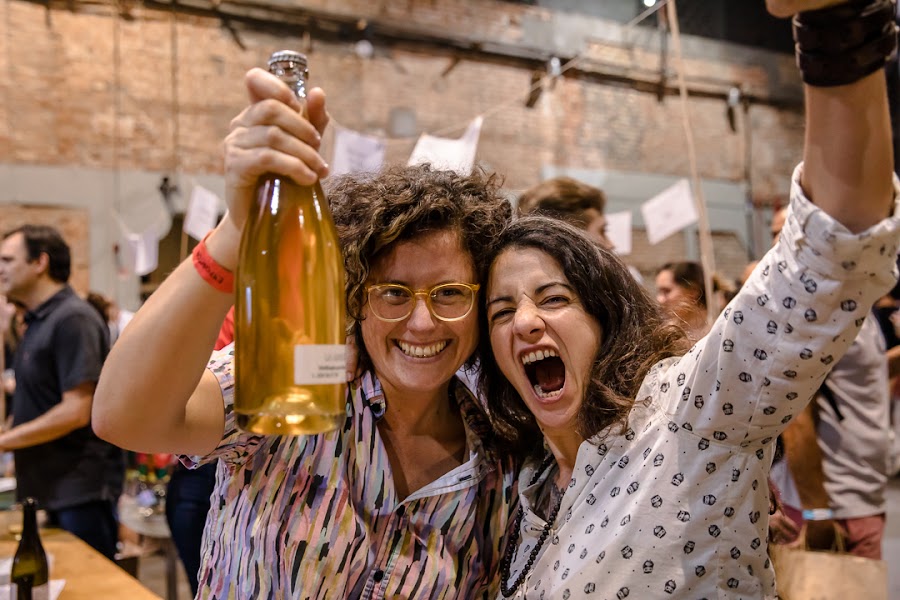
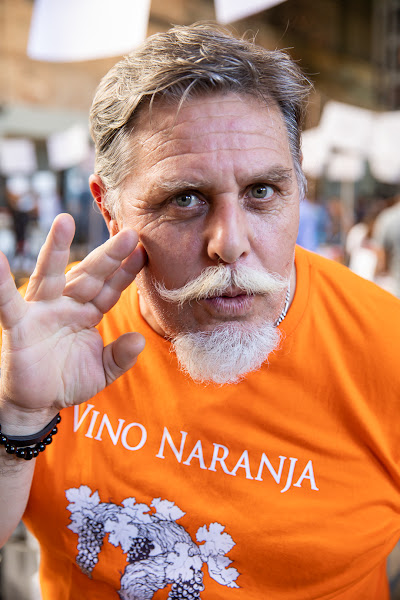
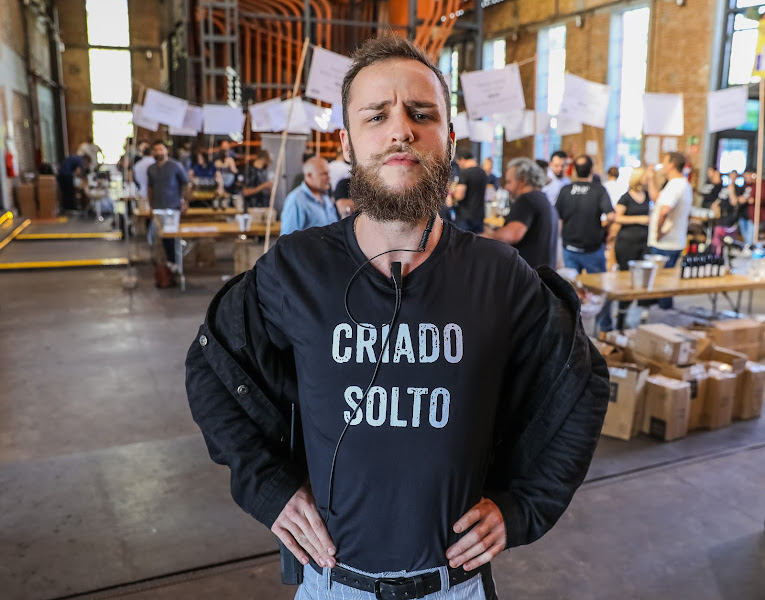
How It Works?
Purchasing your ticket grants you entry to the fair and tasting access to all the products on display. With over 150 producers and more than 2,000 wines from around 14 different countries, there are ample opportunities to taste, learn, and buy directly. The ticket also includes entry to the fair’s closing party.
Producers do not pay to participate, and the fair does not retain any percentage of sales, redirecting all ticket revenue to cover the event’s structure costs. The goal is to remain independent and avoid external investments. The space allows producers to sell, exhibit, engage with consumers, and meet new importers freely.
Location & Date:
In 2025, Feira Naturebas will take place on June 21 & 22 at the First Pavilion of the Bienal do Ibirapuera in São Paulo. We expect over 190 producers from more than 14 countries and around 2,800 visitors.
Direct Sales:
Unlike many wine fairs around the world, Naturebas is a fair to discover and taste, but also to purchase wines directly from the producer.
Direct sales without intermediaries are part of a sustainable consumption model, which is why we do not interfere with the sales processes within the fair; sales take place directly between the public and producers. We only provide the space and structure for exhibitors, retaining absolutely no percentage of these sales.
A Fair for Professionals & Importers.
Feira Naturebas is open to the general public but is also aimed at professionals in the F&B sector, importers, and producers looking for new products for their portfolios or wine lists.
São Paulo serves as a major gateway to Latin America, and many of the wine producers participating in the fair are seeking importers or distributors within the country.
In 2025, we anticipate over 170 wine and food producers and importers from around the world. Among them, more than 30 natural wine producers will be seeking an importer in Brazil. In previous editions, an average of 40% of foreign producers without distribution in Brazil secured import contracts through the fair.
Special Hours for Professionals.
For sommeliers, bar and restaurant owners, importers, consultants, and buyers, we offer a professional registration that allows entry two hours before the general public.
Once you have purchased your ticket, simply email [email protected] with a screenshot of your ticket, full name, job title, and the name of the establishment where you work. Once we receive this information, we will confirm your registration, and on the day of the event, you just need to present your ticket and provide your name at the reception desk.
Kitchen.
Every year, we invite chefs or projects related to sustainable food to host the Naturebas kitchen.
Content Archive:
During the pandemic, the 2020 edition was a large-scale hybrid between the real and virtual worlds, with over 300 presentations, masterclasses, and talks by leading figures in natural wine and global sustainable practices. All this content is available in our archive.
Naturebas Week:
In the “Agenda” section, we will publish all events parallel to the fair, including tastings, courses, free lectures, and workshops related to the theme.
Our history:
The fair began thirteen years ago, in 2013, inside Enoteca Saint VinSaint – a pioneering restaurant and wine bar in the field of natural wines in Brazil, open since 2008. Our idea was to create a fair to stimulate the natural wine world, which was already flourishing in the rest of the world but just starting here in our country. The same team from Enoteca still manages and organizes the event independently.
Our first edition took place inside the restaurant, with only 20 exhibitors and 100 participants. By 2023, the event had grown to over 160 exhibitors and around 2,000 participants. This year, in 2024, the fair will be held in the First Pavilion of the Bienal do Ibirapuera, a historical building and an architectural and cultural landmark of the city. We expect more than 170 producers from over 14 countries and around 2,500 visitors.
Feira Naturebas was born in 2013 as an independent fair for natural, organic, and biodynamic wines. Our goal is to give a voice to natural, organic, and biodynamic wine producers, providing a space free of intermediaries and direct sales, bringing closer those who consume food and drink to those who produce it sustainably.
Feira Naturebas was the first specialized fair of its kind in Brazil and is now the largest in the sector in Latin America, establishing itself year after year as the main reference for the Latin American natural wine movement.
Video Library:
During the pandemic, the 2020 edition was a massive hybrid between the real and virtual worlds, with over 300 presentations, masterclasses, and talks from the top names in natural wine and global sustainable thinking. All of this is available in our content archive, in the “Video Library” section.
Sustainability
In all editions, various sustainability-related activities take place alongside the event, from a kitchen using food market surplus to compostable or edible packaging, to the recycling of ALL materials used.
The cart-pullers are our great partners and are responsible for more than 90% of all recycling in the city of São Paulo. The cart-pullers from the Reciclabela project collected the following materials for recycling during the 2024 edition:
– Cardboard | 349.149 kg.
– Plastic | 29.317 kg.
– Glass | 860 kg.
This contributed the following savings along the production chain:
– 1,578 kWh of energy.
– 17,196 liters of water.
– 1.49 tons of CO2.
– 1.73m³ of landfill space.
– 6 trees.
– 168 liters of oil.
